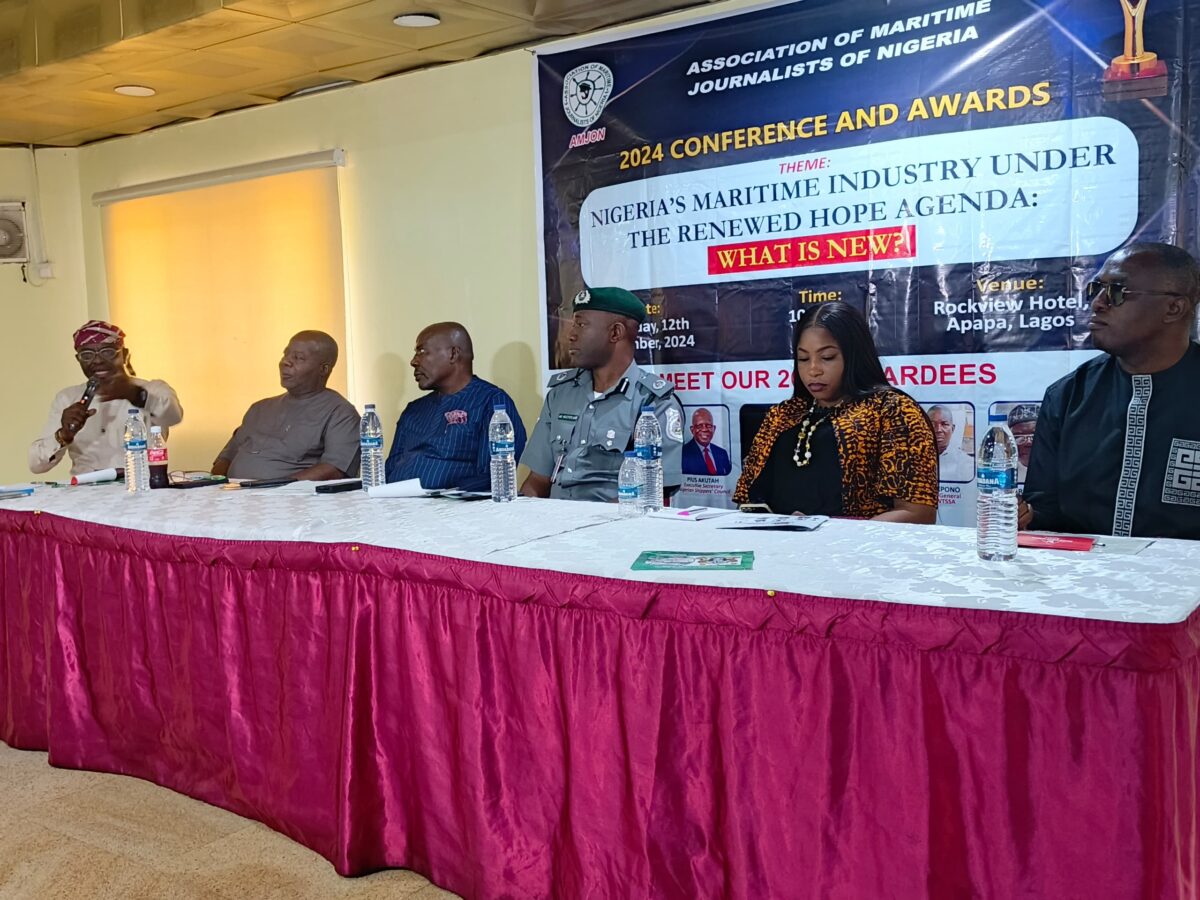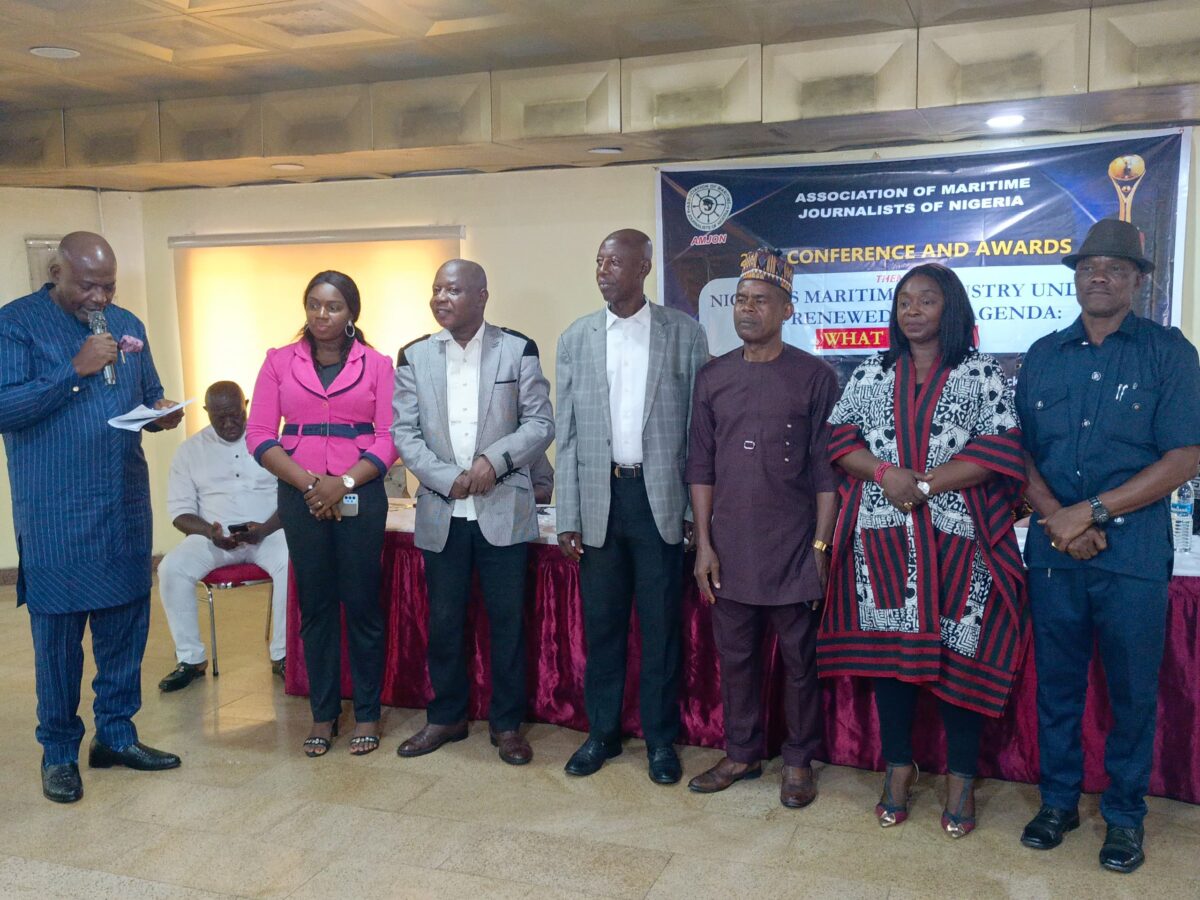
The Nigerian Shippers’ Council (NSC) has outlined the economic benefits of a proposed Nigerian Shipping and Port Economic Regulatory Agency Bill aimed at addressing long-standing challenges in the maritime sector.
The proposed bill, which is under review, is set to revolutionize Nigeria’s maritime sector by reducing operational costs, attracting investments, and enhancing regulatory efficiency, industry stakeholders have revealed.
Speaking at the 2024 Annual Conference and Awards of the Association of Maritime Journalists of Nigeria (AMJON) in Lagos on Thursday, the Executive Secretary/CEO of NSC, Mr. Pius Akutah, said the bill would reduce costs, enhance port efficiency, and attract significant local and foreign investments.
Mr. Akutah who was represented by the NSC Director, Strategic Planning and Research, Mr Rotimi Anifowose, highlighted that the bill would reduce arbitrary delivery charges and exorbitant shipping fees, which have burdened shippers and businesses. Additionally, he noted that the government would benefit from increased revenue streams due to improved compliance and port utilization.
According to the NSC boss, the bill is expected to make Nigerian ports more attractive to international shipping lines by addressing bottlenecks and ensuring fair trade practices. Akutah emphasized that these reforms would improve Nigeria’s global trade standing and potentially position the country as a regional hub for shipping and logistics.
He also noted that port efficiency would be significantly enhanced, leading to reduced delays and faster dispute resolution through the Council’s mediation mechanisms.
“For stakeholders, this means reduced costs and fewer instances of extortion or illegal charges. For consumers, lower transportation costs will translate to reduced prices of goods. A clearer and more regulated operational framework will also boost investor confidence, spurring investments in port-related businesses such as shipping, logistics, and infrastructure development,” Akutah added.

On his part, the Area Controller of the Tin Can Island Port Command of the Nigeria Customs Service (NCS), Comptroller Dera Nnadi, urged stakeholders in Nigeria’s maritime sector to prioritize accurate data, constructive narratives, and collaborative efforts to enhance the industry’s competitiveness.
Comptroller Nnadi addressed key issues affecting the maritime sector, including regional trade, cross-border operations, and the role of stakeholders in promoting Nigeria’s economic image.
Speaking on Nigeria’s position as an economic anchor for West and Central Africa, Comptroller Nnadi called for balanced policies that protect local industries while encouraging legitimate trade. He emphasized the role of “cultural diplomacy” in fostering better trade relations with neighboring countries.
Highlighting the Customs’ achievements, Comptroller Nnadi credited stakeholder collaboration for the success recorded in revenue generation and operational efficiency. He acknowledged the mentorship and contributions of seasoned professionals in the sector, emphasizing the need for experienced practitioners to guide younger generations.
On regional and continental trade, Nnadi emphasized the importance of maintaining Nigeria’s competitiveness, particularly under the African Continental Free Trade Agreement (AfCFTA). He urged stakeholders to focus on policies and practices that showcase Nigeria’s strengths rather than highlighting weaknesses.
Nnadi challenged industry associations to take up the task of promoting Nigeria’s maritime sector positively. “Let us work together to ensure that Nigeria’s economic potential is highlighted, and our contributions to the regional and global economy are celebrated,” he urged.
On his part, the President of AMJON, Mr Kelvin Kagbare appreciated the stakeholders for gracing the occasion to contribute their quota to the development of the maritime industry. He however stressed the need for a collective commitment from stakeholders to prioritize collaboration, transparency and innovation to strengthen Nigeria’s maritime sector.
The high points of the event was the presentation of awards to deserving stakeholders in the industry and the inauguration of the newly-elected executives of the association.















